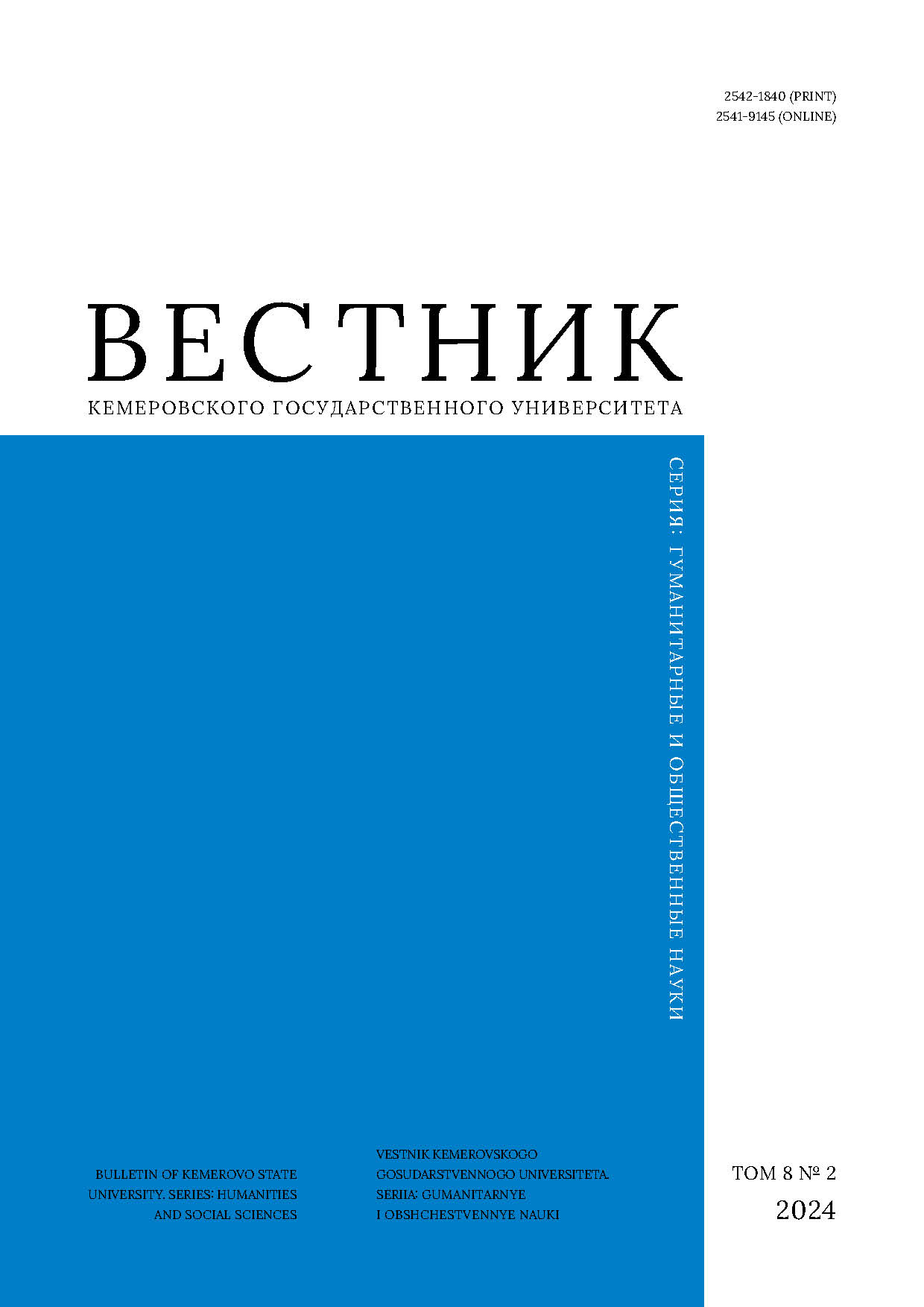Irkutsk, Russian Federation
In the early XIX century, the legal practice of the Russian Empire used several forms of normative legal acts. The legalized forms were provided for by Article 53 of the Code of Laws of the Russian Empire. The list included manifestos, decrees, instructions, etc. The author matched normative legal acts with the legal prescriptions that implemented them, as well as identified the forms of normative acts that were not provided for by the Code of Laws. The Complete Collection of Laws of the Russian Empire also contained some other forms of normative acts, not mentioned in the Code. These other forms included timesheets, posters, plans, journals, etc., approved by the Emperor. States, resolutions, and notes were the most popular variants. States determined the composition of a specific business entity or element of a state mechanism, e.g., a ministry, an office, a police or military unit, etc. Sometimes, they indicated positions and corresponding salaries. Resolutions were Emperor’s written responses to an action (message or act) of a government representative. Notes were proposals of specific measures and actions sent to the Emperor by a government representative. The Emperor gave them legal force with certain formulas, e.g., To Execute or So Be It. These forms of acts were quite wide-spread during the reform period. The article describes the place of states, resolutions, and notes in the system of normative acts, as well as provides their quantitative analysis.
law, sources of law, normative legal act, law of the XIX century, Russian legislation, Complete Collection of Laws of the Russian Empire
1. Vernadsky G. V. Legal history. St. Petersburg: Lan, 1999, 175. (In Russ.)
2. Shershenevich G. F. General theory of law. Moscow: Br. Bashmakovyh, 1910, 806. (In Russ.)
3. Shatkovskaya T. V. The legitimization of political relations in the Russian empire at the beginning of the xviii century: On the history of the formation of Russian public law. Historical and legal yearbook 2022, ed. Pashencev D. A. Moscow: Infotropik Media, 2023, 77–88. (In Russ.) https://www.elibrary.ru/xqmqui
4. Baranov V. M., Demichev A. A. The legal nature of the Code of Laws of the Russian Empire in the light of the history and theory of systematization of normative acts. Systematization of legislation in Russia: History and Modernity (175th anniversary of the Code of Laws of the Russian Empire): Proc. Inter. The round table, Moscow, 18–19 Jan 2008. Moscow: ISL RAS, 2008, 42–50. (In Russ.) https://www.elibrary.ru/ymoihg
5. Lapteva L. E., Medvedev V. V., Pahalov M. Yu. The history of the Russian state and law. Moscow: Iurait, 2011, 634. (In Russ.) https://www.elibrary.ru/vtsvjb
6. Minnikes I. V. Sources of Russian Law: Problems of evolution. Moscow: ARSUJ, 2009, 102. (In Russ.) https://www.elibrary.ru/qrecpf
7. Yurtaeva E. A. The State Council in Russia. 1906–1917. 2nd ed. Moscow: URSS, 2011, 208. (In Russ.) https://www.elibrary.ru/qprsnz
8. Vladimirova G. E. Types and system of sources of positive law in the Code of Basic Laws of the Russian Empire of 1832. Systematization of legislation in Russia: History and Modernity (175th anniversary of the Code of Laws of the Russian Empire): Proc. Inter. The round table, Moscow, 18–19 Jan 2008. Moscow: ISL RAS, 2008, 244–250. (In Russ.)
9. Korkunov N. M. Lectures on the general theory of law. 2nd ed. St. Petersburg: YuTs Press, 2004, 430. (In Russ.)
10. Korkunov N. M. Decree and law. St. Petersburg: Tip. M. M. Stasyulevicha, 1894, 408. (In Russ.)
11. Kotlyarevsky S. A. Power and law: The rule of law. Moscow: Mysl, 1915, 430. (In Russ.)
12. Yurtaeva E. A. On interpretation of the law in pre-revolutionary Russia. Journal of Russian Law, 2010, (9): 83–98. (In Russ.) https://www.elibrary.ru/ndlyfx
13. Ilina T. N. "Law and Decree": standard regulations of the Russian empire. Istoriko-pravovye problemy: novyj rakurs, 2015, (12): 95–106. (In Russ.) https://www.elibrary.ru/ujhwnd
14. Taranovsky F. V. The history of Russian law. Moscow: Zercalo, 2004, 238. (In Russ.)
15. Eroshkin N. P. The history of state institutions in pre-revolutionary Russia. Moscow: Vyssh. shk., 1983, 352. (In Russ.)
16. Demkin A. V. The early rule of Emperor Alexander. The internal policy of Alexander I in 1801–1805. Moscow: Kuchkovo pole, 2012, 320. (In Russ.) https://www.elibrary.ru/rvbrpn
17. The development of Russian law in the first half of the XIX century, ed. Skripilev E. A. Moscow: Nauka, 1994, 314. (In Russ.)
18. Bokhanov A. N., Zakharova L. G., Mironenko S. V., Sakharov A. N., Tvardovskaya V. A. Russian autocrats, 1801–1917. Moscow: Mezhdunar. otnosheniya, 1993, 400. (In Russ.) https://www.elibrary.ru/urxbap
19. Safonov M. M. The problem of reforms in Russian government policy at the turn of the 18th and 19th centuries. Leningrad: Nauka, 1988, 248. (In Russ.) https://www.elibrary.ru/zudprt
20. Balina O. G. The policy of Alexander I and the "educational reforms" in Russia in the first quarter of the XIX century. Kultura. Dukhovnost. Obshchestvo, 2016, (22): 24–36. (In Russ.) https://www.elibrary.ru/vmfyit
21. Speransky M. M. Plan of universal public education count M. M. Speransky. (Introduction to the Code of State laws 1809). Moscow: Russkaia mysl, 1905, 359. (In Russ.)
22. Rogov V. A. The history of the state and law of Russia in the IX – early XX centuries. 3rd ed. Moscow: MGIU, 2006, 255. (In Russ.)
23. Muromcev S. A. Definition and basic division of law. 2nd ed. St. Petersburg: SPbSU, 2004, 223. (In Russ.) https://www.elibrary.ru/qvwymt

















